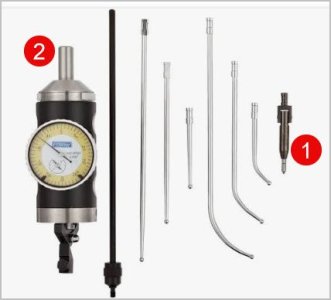My Shumatech DRO has the ability, with a simple electrical touch probe to find the center of a round object. So until I had the probe used with LinuxCNC it's been fine for finding the center point between two edges or the middle of a hole.
Now I rarely use the DRO although considering lead screw backlash the DRO is probably more accurate but again only to the nearest 0.0005".
Now I rarely use the DRO although considering lead screw backlash the DRO is probably more accurate but again only to the nearest 0.0005".

